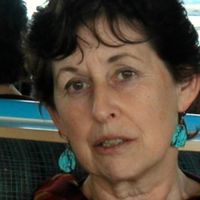Eve Clark

Richard Lyman Professor in the Humanities, Emerita
PhD, Univerity of Edinburgh, Linguistics (1969)
Diploma, University of Edinburgh, Theoretical Linguistics (1966)
MA Hons, University of Edinburgh, French Language & Literature (1965)
Academic Appointments
Emeritus Faculty, Acad Council, Linguistics
Member, Wu Tsai Neurosciences Institute
Honors & Awards
President, International Association for the Study of Child Language (2011-2014)
LabEx International Chair, Université de Paris-Diderot (2014)
Fellow, Linguistic Society of America (elected 2016)
Fellow, Cognitive Science Society (elected 2015)
Fellow, Association for Psychological Science (elected 2007)
Fellow, American Association for the Advancement of Science (elected 2003)
Foreign Member, Koniklijke Nederlandse Akademie van Weterschappen (KNAW) (elected 1991)
Fellow, John Simon Guggenheim Memorial Foundation (1983-1984)
Fellow, Center for Advanced Study in the Behavioral Sciences, Stanford (1979-1980)
I am interested in first language acquisition, the acquisition of meaning, acquisitional principles in word-formation compared across children and languages, and general semantic and pragmatic issues in the lexicon and in language use. I am currently working on the kinds of pragmatic information adults offer small children as they talk to them, and on children's ability to make use of this information as they make inferences about unfamiliar meanings and about the relations between familiar and unfamiliar words. I am interested in the inferences children make about where to 'place' unfamiliar words, how they identify the relevant semantic domains, and what they can learn about conventional ways to say things based on adult responses to child errors during acquisition. All of these 'activities' involve children and adults placing information in common ground as they interact. Another current interest of mine is the construction of verb paradigms: how do children go from using a single verb form to using forms that contrast in meaning -- on such dimensions as person, number, and tense? How do they learn to distinguish the meanings of homophones? To what extent do they make use of adult input to discern the underlying structure of the system? And how does conversation with more expert speakers (usually adults) foster the acquisition of a first language? I am particularly interested in the general role of practice along with feedback here.